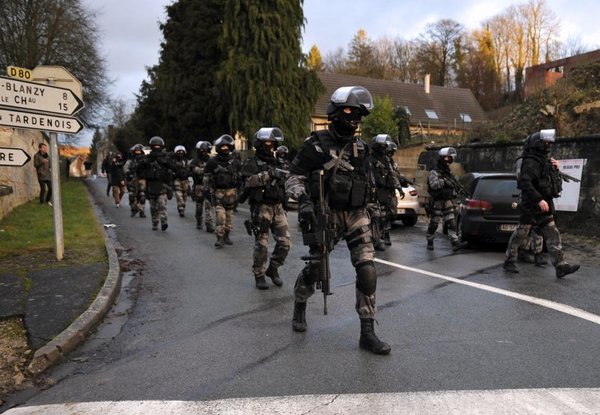Salafism Spreads While Europe Fiddles
“In terms of effectiveness in the fight against terrorism, the effect is zero.”
Salafism Spreads While Europe Fiddles
Soeren Kern | New York Daily News | January 9, 2015
The jihadist attack on the offices of Charlie Hebdo, a French magazine known for lampooning Islam, has cast a glaring light on the growing problem of Muslim radicalization in Europe.
While there are millions of European Muslims who worship in peace and pose no threat whatsoever to others, increasing numbers of Muslims on the continent are embracing a radical form of Islam and its call to wage violent jihad against all nonbelievers for the sake of Allah.
The trend can be seen in the increasing appeal of Salafism, the fastest-growing Islamic movement in Europe.
Salafism takes its name from the Arabic term salaf, which means predecessors or ancestors. Salafists trace their roots to Saudi Arabia, the birthplace of Muhammad, and glorify an idealized vision of what they claim is the true, original Islam practiced by the earliest generations of Muslims, including Muhammad and his companions and followers, in the 7th and 8th centuries.
The aim of Salafism is to re-create a pure form of Islam in the modern era.
This presents serious problems to modern, secular and pluralistic states. A recent German intelligence report defined Salafism as a “political ideology whose followers view Islam not only as a religion but also a legal framework that regulates all areas of life: from the state’s role in organizing relations between people, to the private life of the individual.”
The report added: “Salafism rejects the democratic principles of separation of state and religion, popular sovereignty, religious and sexual self-determination, gender equality and the fundamental right to physical integrity.”
Although Salafists make up only a small fraction of Europe’s burgeoning Muslim community, authorities are increasingly worried that many of those attracted to Salafi ideology are impressionable young Muslims who may be especially susceptible to perpetrating terrorist acts in the name of Islam.
Though we’re still learning about their background and motivations, the three men who murdered a dozen people in Paris on Wednesday would seem to fit that profile.
The scale of Europe’s radicalization problem is reflected by the fact that more than 5,000 European Muslims, including teenagers and women, have become jihadists in Syria and Iraq. European security officials say their main concern is about the potential threats these battle-hardened “enemies from within” will pose when they return to Europe.
While European officials focus on security-related threats, and do a reasonably good job in combating them, far more needs to be done to combat radicalization — a lengthy process that often involves one or two years — at the earliest stages of indoctrination.
European governments have been slow at implementing anti-radicalization programs due to politically correct policies of multiculturalism and to fears of offending Muslim sensibilities.
An anti-jihadist plan unveiled last spring in France, for example, was widely criticized as being nothing more than a political ploy by French President François Hollande aimed at blunting the rising popularity of the anti-immigration Marine Le Pen.
One counterterrorism expert interviewed by the French newspaper Le Parisien said he believed the plan was aimed primarily at reassuring the public, “but in terms of effectiveness in the fight against terrorism, the effect is zero.”
In Britain, the Prevent Strategy, a government counter-radicalization scheme, has also been criticized for being ineffective. According to the U.K.’s most senior counterterrorism official, Mark Rowley, nearly half of the estimated 500 British Muslims who have traveled to Syria and Iraq were previously unknown to the security services.
Unless European governments garner the courage to decisively face down the threat posed by radical Islam, through a range of creative measures, jihadist attacks such as the one in Paris will likely become part and parcel of everyday life in Europe.
Soeren Kern is a Senior Fellow at the New York-based Gatestone Institute. Follow him on Facebook and on Twitter.
Originally published by the New York Daily News on January 9, 2015.




